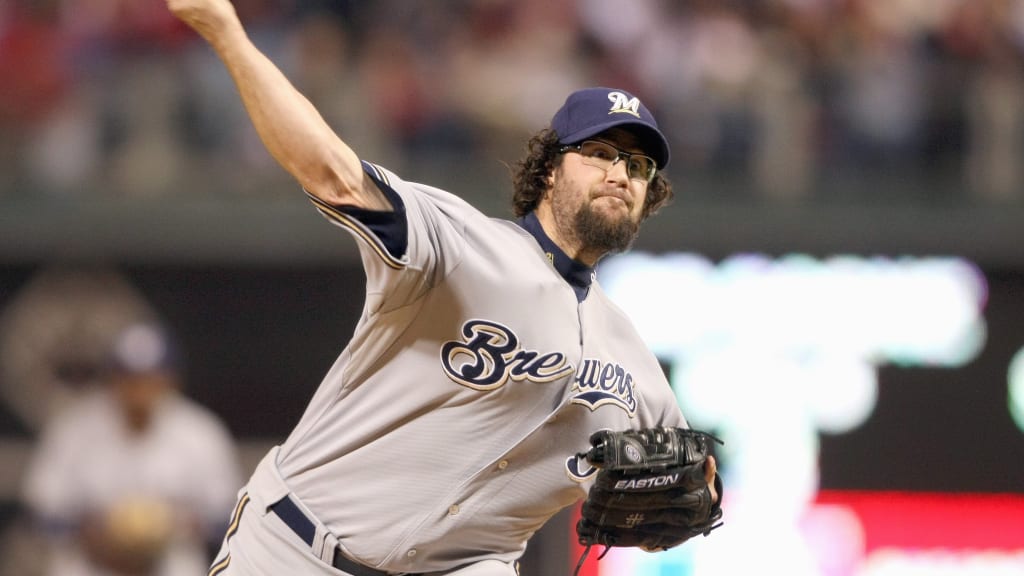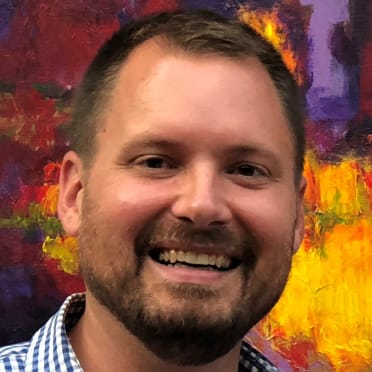
MILWAUKEE -- You conjure an image of Robin Yount and you see him in a Brewers uniform. The man played all 20 of his Major League seasons in Milwaukee's uniform on the way to Cooperstown, so that's natural. The same goes for players like Gorman Thomas, Geoff Jenkins, Ben Sheets and Corey Hart. They all played elsewhere, but come on -- they're Brewers.
And then there are the names on the list that follows. You know them, for sure, but don't necessarily associate them with Brewers blue. For folks outside Wisconsin, perhaps the great Henry Aaron belongs, though his legend is so strong locally that we left him out. Jose Cardenal, Jesse Orosco, Jim Abbott and current MLB managers Gabe Kapler and David Bell sprung to mind as well.
Instead, we chose the 10 below. Test your knowledge of Brewers history by seeing whether any of them make you say, "He was a Brewer?"
Felipe Alou, 1974
The first Dominican to play regularly in the Major Leagues, Alou had a long and distinguished career as a player and manager, so you're forgiven if you forgot his three hitless at-bats off the bench in '74 during the early years of the franchise. They proved Alou's final trips to the plate in the Majors until he started delivering lineup cards as the manager of the Expos and Giants.
Terry Francona, 1989-90
Long before he was building a managerial resume that will one day garner Hall of Fame consideration, Francona played the final two of his 10 Major League seasons in Milwaukee. The best story of his forgettable tenure comes from longtime Brewers beat reporter Tom Haudricourt, who wrote in his book "100 Things Brewers Fans Should Know & Do Before They Die" of the July 9, 1989, game in which Francona was ejected while taking an intentional walk. It was the result of a weeks-old beef with umpire Ken Kaiser, who got into a heated argument with Francona at home plate while Orioles pitcher Bob Milacki was lobbing intentional balls Francona's way. Francona never made it to first base, and then-Brewers manager Tom Trebelhorn had to send in a pinch-runner to replace him.
Dave Parker, 1990
Parker, the 1978 National League Most Valuable Player Award winner for the Pirates, wasn't just a Brewers player: He was a Brewers All-Star. The Cobra hit .289 with 21 home runs and 92 RBIs in '90, mostly as a designated hitter, good enough to garner some American League MVP Award votes and win his third Silver Slugger Award. It was the seventh and final All-Star nod of Parker's career, which ended after splitting the '91 season between the Angels and Blue Jays.
Willie Randolph, 1991
Some might remember Randolph as a Brewers coach under Ken Macha in 2009-10, but do you remember him as a Brewers player? Randolph, the onetime Yankees captain, turned in a terrific year for Milwaukee in 1991, when he led the Brewers with a .327 average and a .424 on-base percentage -- just better than Paul Molitor in both categories that year. His OBP was second-best in the AL, and his average was third. Randolph returned to New York the following winter with the Mets, but he played just one more season.
Dante Bichette, 1991-92
Before he was a Blake Street Bomber, making four All-Star teams in a five-year span with the Rockies, Bichette spent two seasons with the Brewers that showed little of the prodigious power to come. He did hit 15 homers 134 games in 1991, but he hit only five in '92 before topping 20 home runs in each of the next eight seasons in Denver, including a 40-homer, 128-RBI season in '95 when he finished second in NL MVP Award balloting. Then-Brewers GM Sal Bando probably wishes he'd gotten more than one year of Kevin Reimer for Bichette in the trade that brought Reimer to Milwaukee for his final big league season.
Julio Franco, 1997
Before Craig Counsell brought his unique batting stance to home plate at Miller Park, Franco did the same at County Stadium. The former AL batting champion played 42 games in 1997 after being released by the Indians in August and hit .241/.373/.348 for a Milwaukee team that was chasing Cleveland in the AL Central race. The Brewers were in second place into September but faded to third, and Franco played in Japan for '98.
Hideo Nomo, 1999
The first Japanese professional player to relocate permanently to Major League Baseball in the U.S., Nomo went 12-8 with a 4.54 ERA over 28 starts for the Brewers while becoming the third-fastest pitcher in MLB history to reach 1,000 strikeouts.
Devon White, 2001
A seven-time Gold Glove Award winner and three-time All-Star who won World Series rings with the 1992 and '93 Blue Jays and the '97 Marlins, White was in his age-38 season and at the end of his 17-year Major League career when he (along with former Jays teammate Tony Fernandez) came to the Brewers just as they moved into Miller Park. White had a terrific farewell season, slashing .277/.343/.459 for a career-best .802 OPS. He retired on a high point.
Eric Gagne, 2008
For everything that went right for the Brewers in 2008, when they won the NL Wild Card to snap the franchise's 26-year postseason drought, their $10 million, one-year pact with Gagne went very wrong. Gagne, who'd built a reputation as one of baseball's best closers with the Dodgers, winning the NL Cy Young Award in 2003, had already moved on to the Rangers and Red Sox before settling in with the Brewers. They anointed him the closer only to take away the job in May. Gagne finished with 10 saves and the lowest strikeout rate of his career in what was his final season in the Majors.
Jim Edmonds, 2010
Edmonds, an eight-time Gold Glove Award winner and four-time All-Star between the Angels and Cardinals, had sat out the 2009 season because he didn't like the offers he received as a free agent, then accepted a non-roster invitation to Brewers camp in '10 and made the club. He could still glide around the outfield with the best of them and hit enough -- .843 OPS in 240 plate appearances -- to be traded to the contending Reds in August. But Edmonds injured his Achilles running out a home run with Cincinnati and the issued lingered into the following spring, forcing his retirement.
